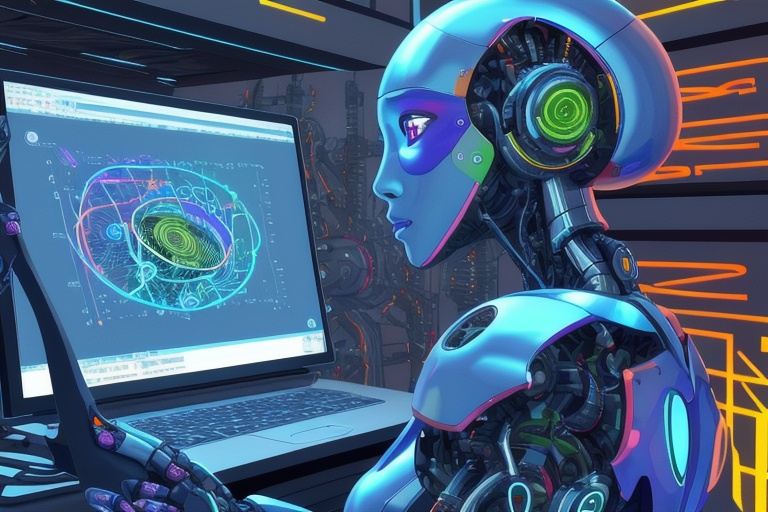The internet has revolutionized the way we live, work, and interact with the world around us. However, the inexorable march of technological progress brings with it heightened risks as well as seminal opportunities. In the pioneering days of computing, systems were assumed secure. Today, with the ubiquity of the internet, our digital ecosystem is rife with threats, teeming with various forms of malware aiming to breach the defences of our sensitive data. Within this complex digital terrain, two emergent fields take prominence: artificial intelligence (AI) and cybersecurity. Though seemingly analogous in their technological underpinnings, they exhibit unique attributes that deserve a closer examination.
The internet has revolutionized the way we live, work, and interact with the world around us. However, the inexorable march of technological progress brings with it heightened risks as well as seminal opportunities. In the pioneering days of computing, systems were assumed secure. Today, with the ubiquity of the internet, our digital ecosystem is rife with threats, teeming with various forms of malware aiming to breach the defences of our sensitive data. Within this complex digital terrain, two emergent fields take prominence: artificial intelligence (AI) and cybersecurity. Though seemingly analogous in their technological underpinnings, they exhibit unique attributes that deserve a closer examination.
Understanding Cybersecurity
Cybersecurity is the bulwark that guards our endless streams of data from the ceaseless threats of the digital age. It is the art and science of protecting computers, servers, mobile devices, electronic systems, networks, and the not-so-tangible yet invaluable data from unauthorized access and malicious exploits. From large corporations to individual users, the urgency to secure digital assets cannot be overstated.
This domain encompasses a broad spectrum of cybercrimes, each with its own nefarious intent. Phishing scams lure unsuspecting users into revealing personal information. Social engineering attacks manipulate individuals into breaching standard security procedures. Spoofing and reverse engineering are also common tactics that slyly coax our systems into surrendering their secret fortitudes. The paramount objective of cybersecurity is to establish and maintain a resilient fortress around our digital presences, ensuring both the integrity and confidentiality of information assets.
The Realm of Artificial Intelligence
Artificial intelligence, on the other hand, epitomizes the cognizance we have bestowed upon the machines of our creation. Spanning decades, researchers have ardently endeavored to endow machines with human-like intellect, an endeavor that has invigorated the field of AI. At its core, AI proposes the tantalizing possibility that the myriad functions of the human brain can be synthesized through a combination of intricate algorithms and formidable computational prowess.
AI sweeps across a variety of realms: from expert systems offering specialist advice, to natural language processing that bridges human communication with machine understanding. It's seen in the precision of speech recognition systems, the autonomy of self-driving vehicles, and the prescience of smart web browsers. AI's inroads into our daily lives are pronounced, and its potential for innovation seems boundless.
Cybersecurity and AI: Complementary Forces
It's imperative to note the distinct trajectories of cybersecurity and AI. The former is unequivocally dedicated to the defense of our computer systems and networks against the ever-present threat of data breaches. Meanwhile, AI is vested in the creation and perfection of intelligent machines—machines that undertake tasks with an unprecedented level of acumen.
AI's contribution to cybersecurity cannot be trivialized. With the abundance of data points born from cybersecurity endeavors, AI's algorithms stand ready to parse and scrutinize this information, unveiling patterns, anomalies, and burgeoning threats with heretofore-unseen efficiency. Armed with this knowledge, cybersecurity professionals can adopt proactive approaches in mitigating risks and reinforcing defenses.
Required Expertise in AI and Cybersecurity
To truly grasp the intricacies of AI, one must delve into the realms of coding and algorithm development. These are the building blocks upon which AI's capabilities are constructed. Contrastingly, a robust understanding of cybersecurity necessitates a familiarity with the networks it aims to safeguard. This entails a thorough grounding in the various protocols and tools deployed to shore up digital infrastructures.
Even as these fields frequently intersect, it is vital to recognize and respect their individual contributions and applications. Their convergence heralds a new era of possibilities, encapsulating both the promise of robust digital defenses and the pioneering spirit of intelligent automation. It demands from professionals and enthusiasts alike a nuanced understanding of both disciplines.
Navigating the Intersection
The nexus between AI and cybersecurity opens the doors to innovation and attendant complexities. As AI invigorates the field of cybersecurity, we too must evolve our strategies to stay ahead of the curve. It's an enthralling nexus, one where the analytical prowess of AI fortifies the resilient bastions of cybersecurity.
In this exciting landscape, it is our collective responsibility as technologists, business leaders, policymakers, and informed netizens to engage with both the possibilities and the challenges posed by these developments. By understanding the distinctions, synergies, and overlaps between AI and cybersecurity, we equip ourselves to cultivate an informed perspective that appreciates both the subtleties of machine intelligence and the imperatives of cyber defense.
As we forge ahead, it's clear that glimpsing the full potential of AI within cybersecurity will necessitate a more granular exploration—a deep dive into the myriad ways through which AI not only augments but also transforms cybersecurity strategies. This knowledge is not merely academic; it is crucial for future-proofing our society against the onslaught of ever-more sophisticated digital threats. In future installments, we will journey further into this confluence of technological marvels to decode the multifaceted role of AI in bolstering cybersecurity.
Information for this article was gathered from the following source.




